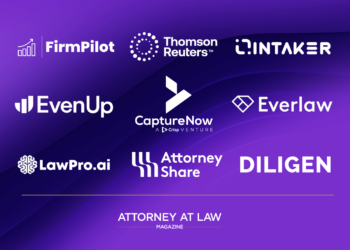As the digital age has transformed the way we access goods, services, and information, the ease that comes with doing nearly everything online comes with a significant cost—a lack of privacy.
Just think of all the data on the web, waiting for hackers to exploit it. Bank account information, health records, driver’s license numbers, Social Security numbers, and more, maybe only protected by a single, easy-to-guess password.
Cybersecurity breaches are a daily occurrence for businesses, making it more important than ever for companies to develop reliable cybersecurity protocols. Despite their best efforts, cybercrime costs businesses around the world hundreds of billions of dollars annually, with the costs rising year after year. With traditional cybersecurity methods often not keeping up with increasingly sophisticated attacks, more businesses and government entities are turning to new technologies like blockchain cybersecurity to improve online safety.
Blockchain and Cybersecurity
Blockchain has unique features that can make it a powerful cybersecurity tool. This distributed ledger technology makes information transparently available to members of a specific blockchain. Any member, or node, can record, view, and pass along any transactional data that is encrypted onto their blockchain. Unlike a regular database, the distributed nature of blockchain doesn’t have a central point to hack that then exposes an entire dataset.
Using the blockchain in cybersecurity can give you a new weapon in the fight to protect sensitive data. You can replace password entry to the transparent ledger with biometrics like fingerprints, creating a single-source, uncrackable form of entry. The distributed nature of blockchain storage ensures each block contains only a tiny piece of the overall whole, limiting hackable data to a tiny amount. Equally important, the public recordkeeping system blockchain employs gives each node an insight into attempted data manipulation, exposing potential cybercrimes as they happen.
Many industries are blazing a path for the use of blockchain in cybersecurity, including:
Cryptocurrencies. More than 1,000 different cryptocurrencies use blockchain technology to ensure the legitimacy of purchases and control the number of cryptocurrencies being created, stabilizing their value. Additionally, cryptocurrency exchanges like Coinbase, MobileCoin, Javvy, and Founders Bank are using blockchain to ensure cryptocurrencies are traded and stored securely.
Traditional Banking. Banks are a constant target of cyberattacks, with sophisticated phishing attacks against employees posing a serious risk of giving hackers an entry point. Early adopters among traditional banks are using blockchain security as part of a multilayered security protocol to decentralize risk, such as using blockchain to securitize international payments, process private transactions, bolster security in fund transfers, or safely store all personal identifying customer information.
Healthcare. The healthcare industry is another perennial target of cyberattacks, suffering twice the number of phishing attempts and malware attacks of any other industry. With patient banking information and personal health data on the line, the need for heightened security is acute. Blockchain cybersecurity enables credentialed actors to safely share patient data while its distributed nature prevents cybercriminals from obtaining a patient’s complete health record. It can also maintain a chronological series of healthcare events to facilitate clearer healthcare decision-making by doctors.
Government and Military. Government and military cybersecurity protocols are woefully inadequate in the face of the growing online threat. Blockchain cybersecurity for sensitive information can thwart hackers with encrypted data, decentralized data storage, and publicly visible ledgers that allow agencies to quickly identify attempted hacks and trace manipulated data to its source.
The Internet of Things (IoT). Weak security protocols have allowed hackers to take remote command over devices such as implantable cardiac devices or baby monitors, or to use peripheral devices to gain access to larger networks. Blockchain cybersecurity can shut this open backdoor by providing a safe means to transfer data from one device to another.
Can Blockchain Help Secure YOUR Business?
Is blockchain cybersecurity the right solution to help secure your business? The answer to that question varies from industry to industry and business to business. If you are interested in learning, make sure you ask a well-respected, experienced firm who asks questions and does not just give a one-size-fits-all answer. If you don’t have a trusted firm, feel free to contact us.









